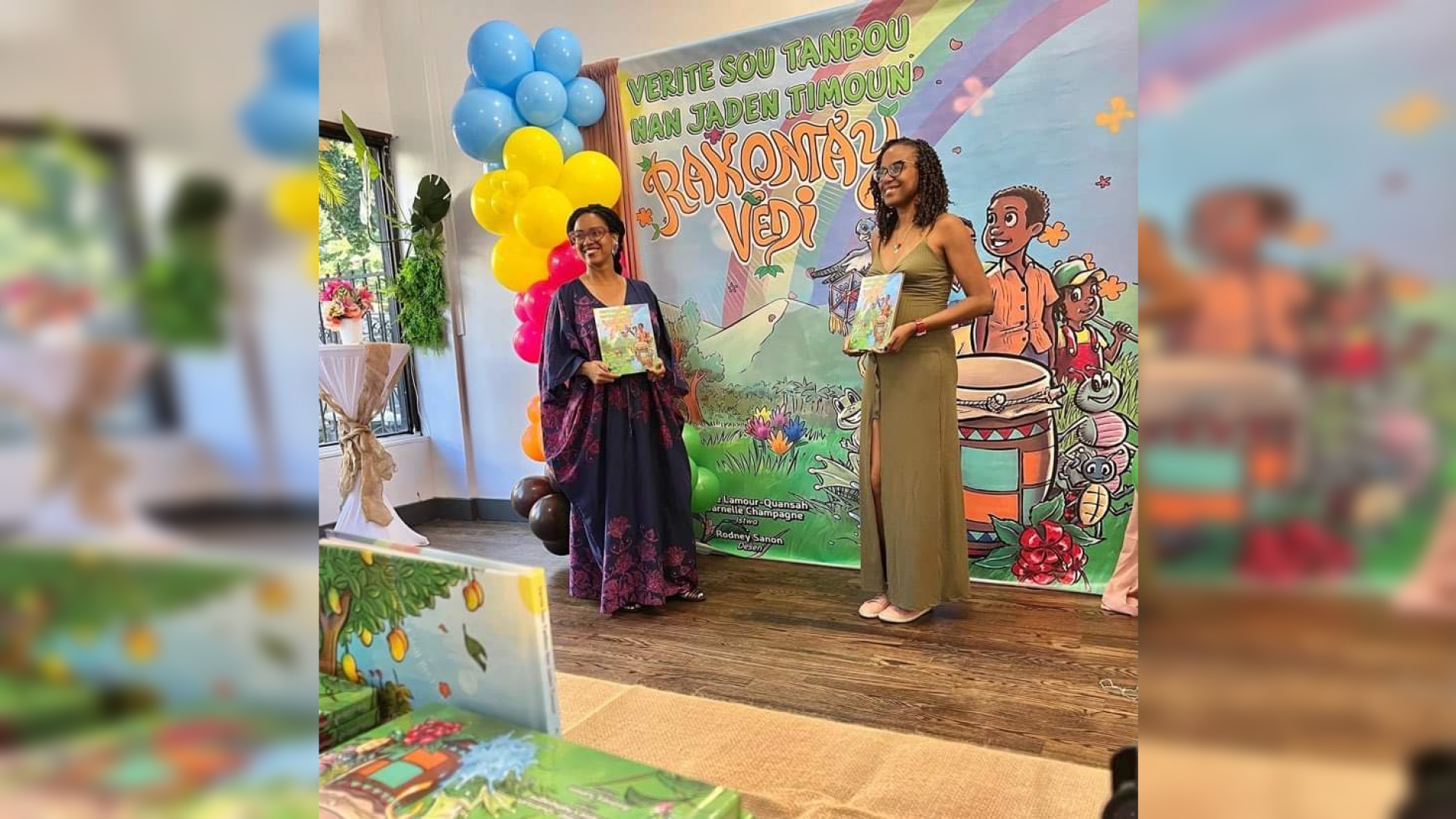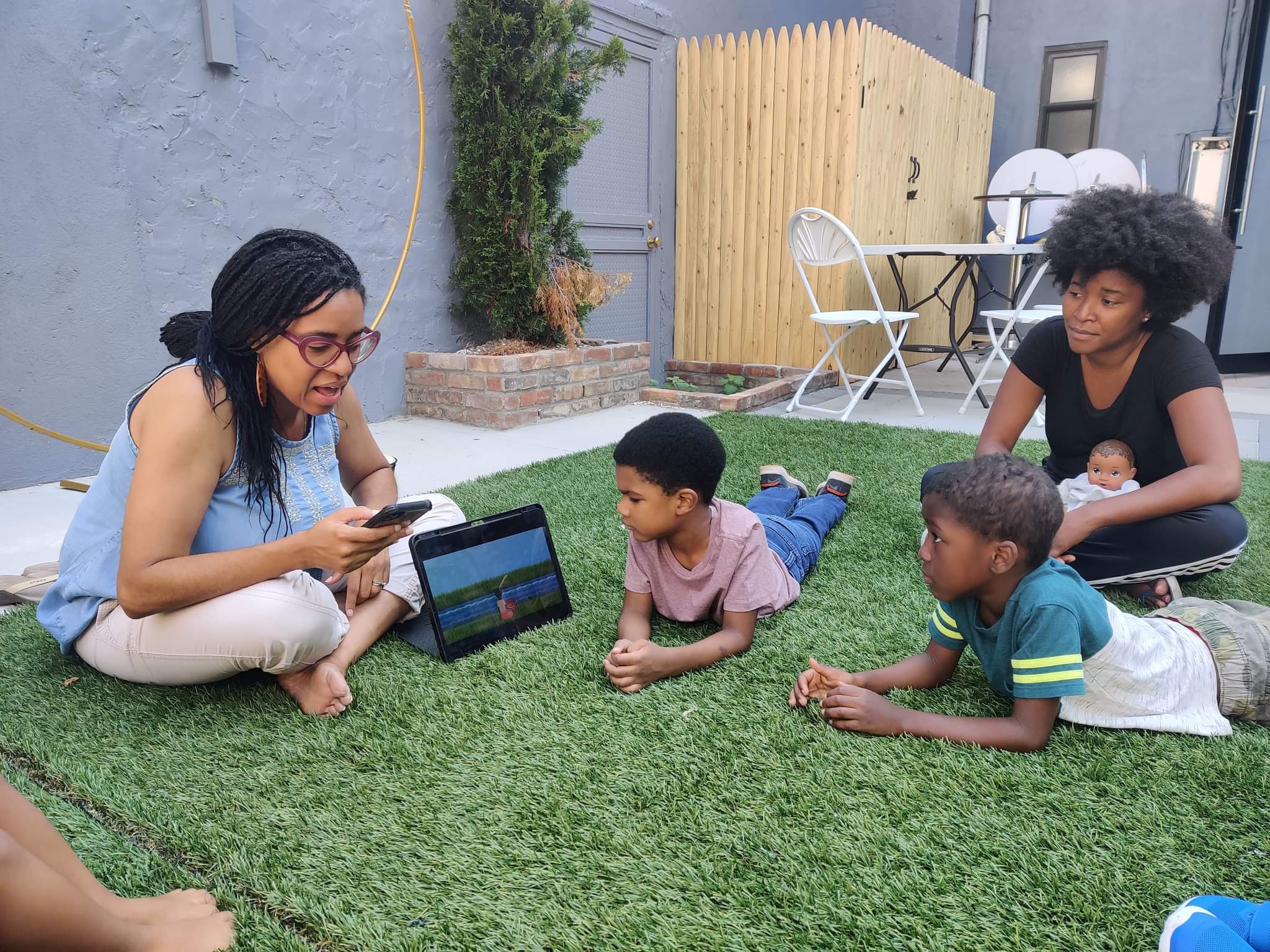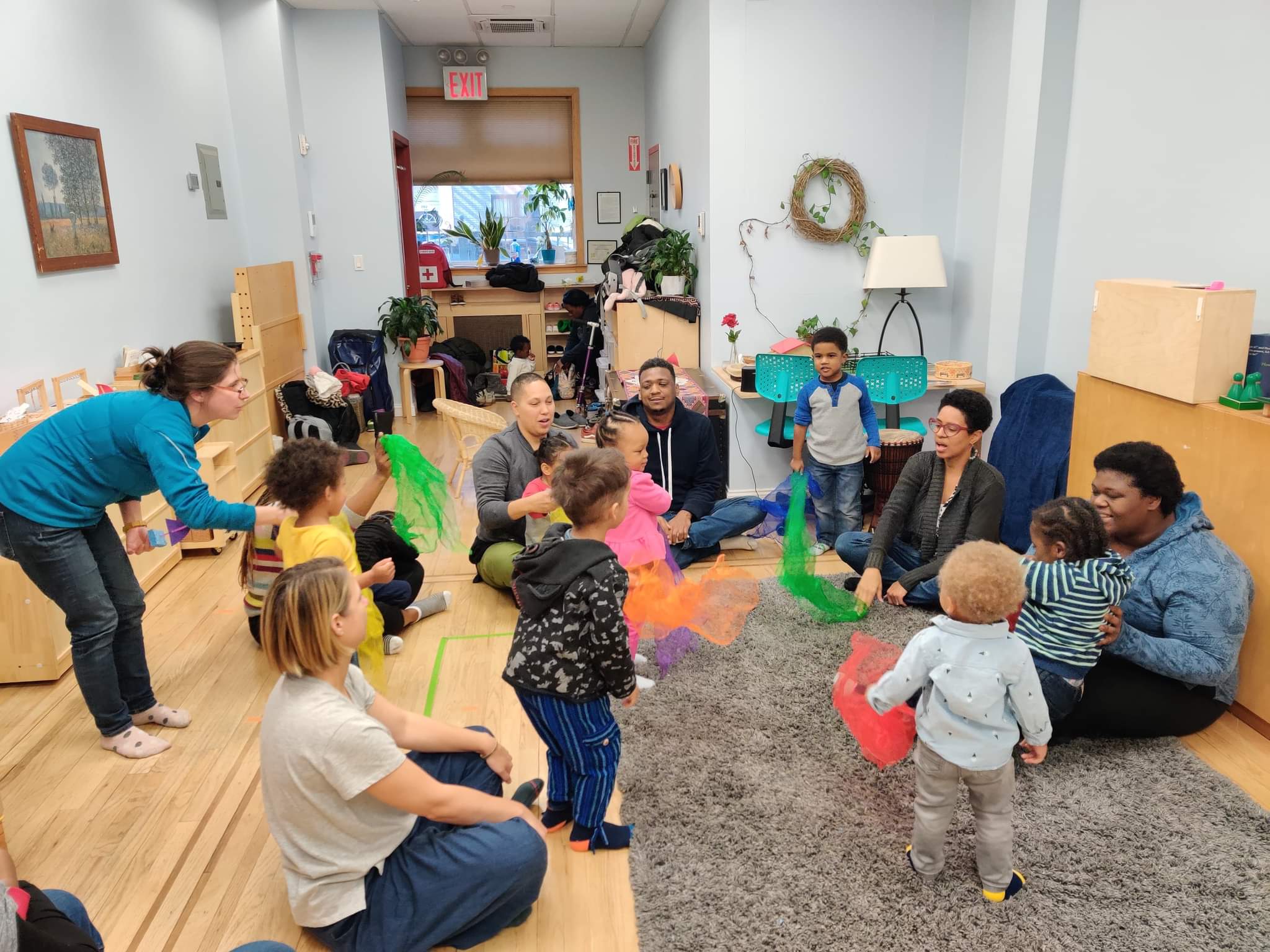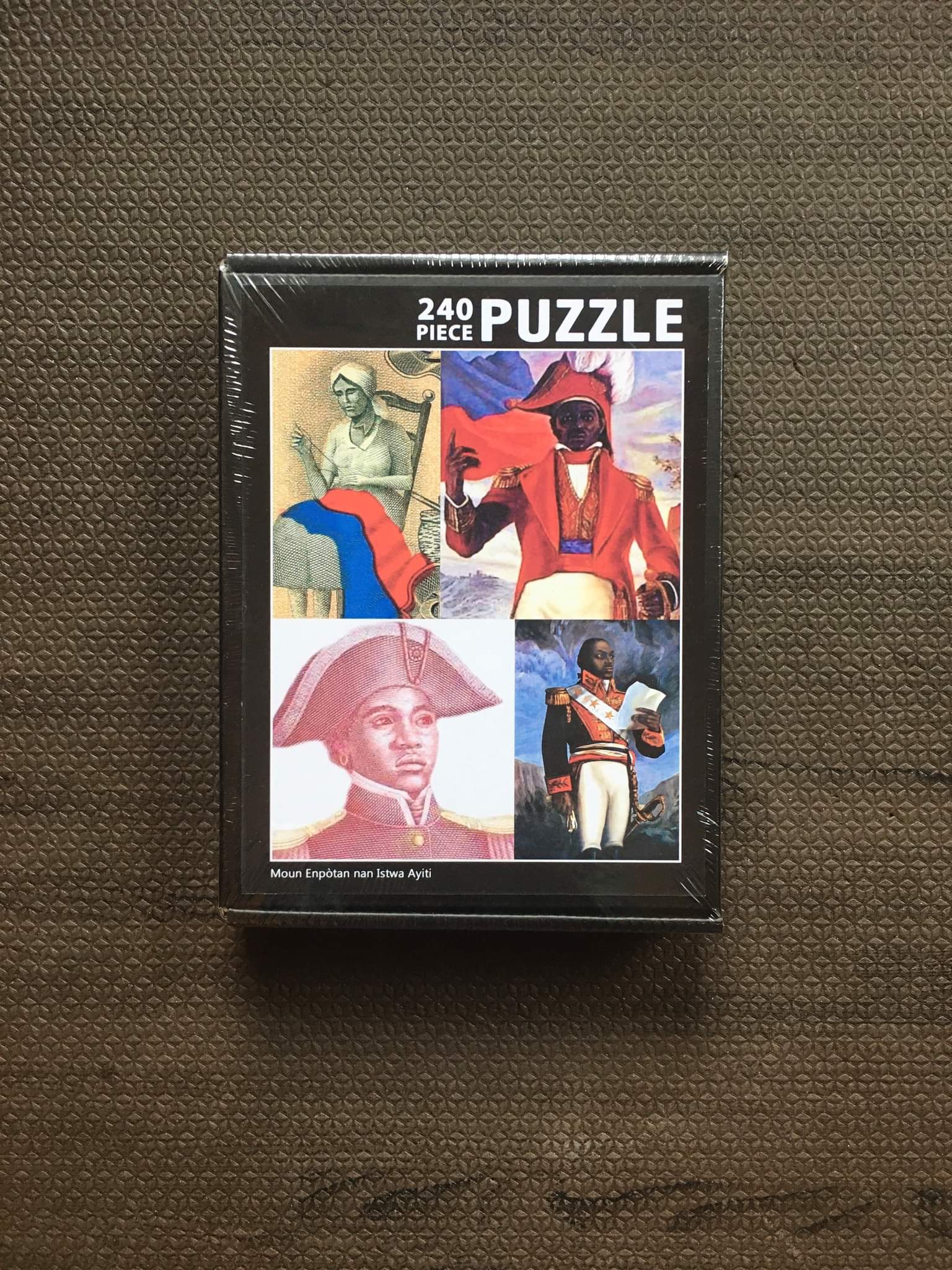
Darnelle Champagne and Wynnie Lamour-Quansah, both lifelong speakers and advocates of the Haitian Creole language, had the idea to create a program for children centered on the language for many years.
However, it wasn’t until 2017 that these two longtime educators decided to create a program formally. Together, they launched Jaden Timoun in the summer of 2018 after much planning, curriculum development, and finding a suitable space for their community of language learners.
The New York City-based interactive language learning program provides weekly lessons to children ages 0-12 locally and internationally through in-person and virtual instruction.
But Jaden Timoun is different from your typical language learning experience. Instead, participants in this program and their families are immersed in the richness and vibrancy of Haitian culture.

“It’s not drills or memorization of sitting down behind the desk. It’s more of an interactive living experience more than anything. We tried to create that kind of space,” says Champagne, who has been an educator for over 15 years.
This dynamic team tells ESSENCE that the program experience includes elements such as music and songs and even incorporates traditional games like dominoes and Oslé (also spelled Osselets), which Champagne says is similar to a game of jacks.
Champagne and Lamour-Quansah say they intentionally created a program that centers and serves children. “It’s important that we get a grasp on who we are as young as possible because what we have at that tender age, we will carry with us,” says Champagne.
It’s an element reflected in every aspect of the experience, including the name Jaden Timoun, which means garden of children. “We do know that plants in a garden need to be well tended so that it grows well and that it flourish as well. So that’s the same for our children. If we don’t tend to them properly, the way they flourish can look very different. And so the name Jaden Timoun is a reminder of what it means to attend to our children and to help nourish them to become what they’re going to become in the future,” Champagne tells ESSENCE.

As Haitian American women who grew up in multilingual households, Champagne and Lamour-Quansah underscored the importance of children, especially Black children being multilingual and having a command of languages like Creole. “We remind people that Creole is a Black language spoken by Black people who have a very Black history,” Lamour-Quansah shares with ESSENCE.
“It’s to remind people that whether or not your background is of Afro descent, you are about to learn something that’s very closely tied to Black people and their heritage. And so absolutely, we subscribe to the idea and the importance of young Black children learning other languages and feeling comfortable in communicating in multiple ways,” she adds.
In addition to language lessons, Jaden Timoun offers books and puzzles that provide a fun way to learn facts about Haiti, such as its national flower, the national bird, UNESCO heritage sites like The Citadel, and revolutionary historical figures of the first Black Republic.








“You know, a lot of people in the diaspora use language as their starting point to reconnect with themselves, their families, their histories, and other people. Other people who are not of African descent do that, too. They’re looking to be better allies. They’re looking to be better supporters, they’re looking to understand better so that they themselves can show up better in the world, and Creole is often the starting point for many people,” Lamour-Quansah says.






